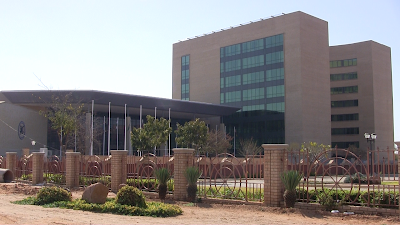by Hussein Solomon
Once again, South Africa’s streets were the scene of the most horrific violence against foreign migrants – specifically those from the African continent. Blaming immigrants for everything from stealing jobs to “stealing our women” to bringing diseases into the country, South Africans went on the rampage against fellow African immigrants. Anti-immigrant sentiment was clearly fuelled by comments made by King Goodwill Zwelithini – king of 7 million Zulus - who called on foreign nationals to leave South Africa as well South Africa’s President Jacob Zuma’s son, Edward Zuma. Zuma Junior blamed much of the crime in the country on immigrants. In the ensuing violence immigrant-owned shops were looted and they themselves were beaten and stabbed on the streets of KwaZulu-Natal and Gauteng.
What is clear though, is that the recent xenophobic violence has a lot to do with the worsening local economic conditions. Unemployment is hovering at record levels – with youth unemployment estimated at 50 percent. Investment into the country, meanwhile, is rapidly declining given the inability of the state power utility – ESKOM – to keep the lights on as well as the strident labour unrest and endemic corruption. Economic growth, meanwhile, hovers at a lacklustre 1.4 percent. Given these desperate economic times, locals are seeking an easy scapegoat to blame for their economic woes. Foreign migrants perform this role of scapegoats – a useful diversion, incidentally, for a government which has failed to deliver economically to its citizens despite it being in power for 21 years. A similar dynamic is also being played out in Europe suffering biting austerity measures where immigrants are being blamed for the falling living standards of locals.
In the aftermath of the xenophobic attacks, it was clear that South Africa’s image on the African continent was severely tarnished. Nigeria, withdrew its High Commissioner from Pretoria displaying its diplomatic teeth publicly; whilst there were calls from others for trade sanctions against Pretoria. It was within the Southern African Development Community (SADC), however, where Pretoria came under its severest criticism. Malawi’s Minister of Information, Kondwani Nankhumwa stated, “Our message to the government of South Africa is clear: protect other nationals or expect trade repercussions, as we cannot continue discussions of regional trade integration with a country where our citizens and our trade partners are being attacked”.
 |
| SADC Headquarters |
Not to be outdone, Zimbabwe’s Information Minister Jonathan Moyo stated on his twitter account: “Sad Zuma failed to condemn xenophobia outright. SADC cheap labour built SA economy and region bore brunt of apartheid”. Moyo’s political boss, President Robert Mugabe, who is also the Chairman of SADC led the charge against Zuma’s handling of the xenophobic violence at a SADC meeting in Harare. Malawi’s President Peter Mutharika meanwhile agitated for a SADC resolution critical of Pretoria.
This criticism has hardened attitudes within the Zuma administration – noting that the problem of migration begins with the sending countries where economic and political conditions are such that many flee southwards. What is clearly enraging the South Africans is that the country adopting the toughest stance against South Africa – Zimbabwe – is contributing the largest number of migrants to South Africa because of the economic meltdown and oppressive political conditions in the country. This hardening of attitudes in Pretoria on issues of migration is clearly seen in the increased searches and deportations of illegal immigrants, the deployment of the South African National Defence Force (SANDF) to the country’s borders as well as discussions on the establishment of camps to confine refugees there.
All this bodes ill for the future of the SADC as a united body. Indeed, one of its first attempts at regional integration was to examine the establishment of a free movement protocol. There are voices of reason within SADC – such as that of Botswana’s president Ian Khama who stated, “…we cannot treat South Africa as an employment bureau for our citizens. We have a problem and one of the issues is development and integration of our economies, as well as industrialisation”. SADC should heed such sage advice from President Khama. The way to regional integration is not through further polarisation but further economic development for a prosperous region.
A word for and from Mozambique. The news about Xenophobic attacks in South Africa have been on the newspapers' headlines for some weeks now. The Mozambican newly elected president Nyusi also widely condemned these events. Thousands of Mozambicans are considering or effectively returning home. The celebration of Workers Day (1st of May) in Maputo underlined these events in a wave of solidarity with the Mozambicans workers in South Africa.
ReplyDelete